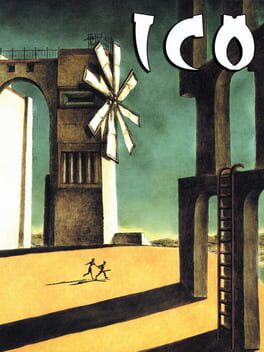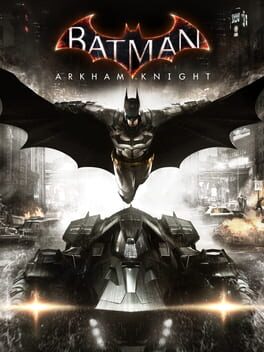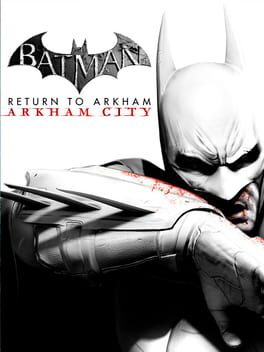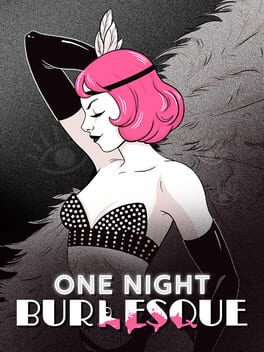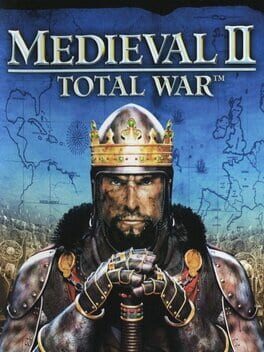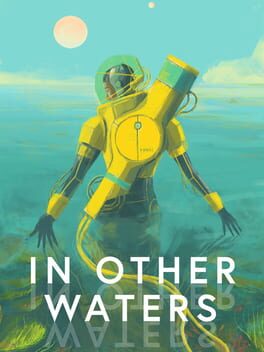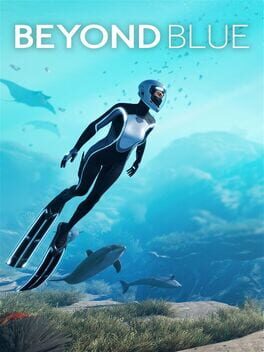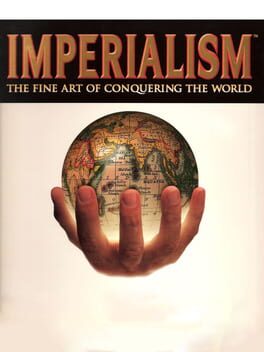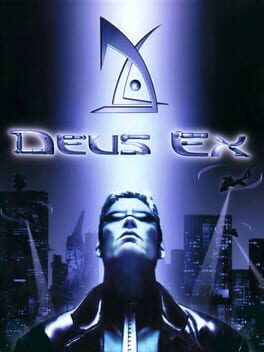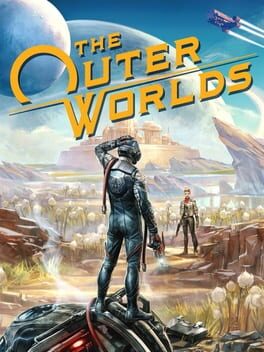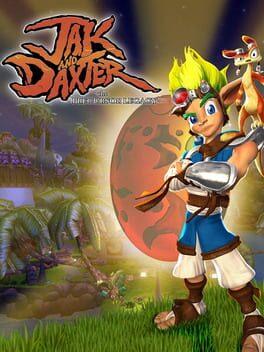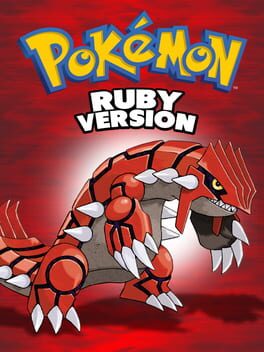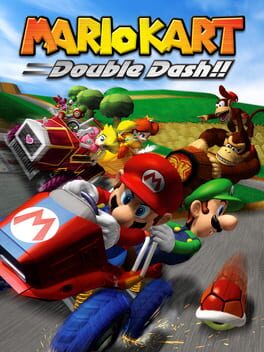MrCanilla
38 reviews liked by MrCanilla
Ico
2012
Ico is the type of game I dread to play, critically acclaimed, landmark classic of the medium, influenced various games and designers I love. I dread playing those because of a fear I have, a fear that's come true : I don't like ICO, in fact, I think I might hate ICO. And now I will have to carry that like a millstone around my neck, "that asshole who doesn't like ICO". Its not even really that external disapproval I dread, its the very reputation that causes me to second guess my own sincerely held opinions. I thought I liked minimalism in game design, and cut-scene light storytelling and relationships explored through mechanics but I guess I don't. There's some kinda dissonance, cognitive or otherwise reading reviews by friends and writers I respect and wondering if there's something wrong with me or if I didnt get it or played it wrong or any other similar foolishness that gets bandied around in Internet discussions. "I wish we could have played the same game" I think, reading my mutuals' reviews of ICO. Not in a dismissive asshole way of accusing them of having a warped perception, but moreso in frustration that I didnt have the experience that has clearly touched them and countless others.
But enough feeling sorry for myself/being insecure, what is my problem with ICO exactly? I don't really know. Genuinely. I wasnt even planning on writing a review originally because all it would come down to as my original unfiltered reaction would be "Playing it made me miserable". Thankfully the upside of minimalism in game design is that its easier to identify which elements didnt work for me because there are few in the game. I think the people who got the most out of ICO developed some kind of emotional connection to Yorda, and thats one aspect which absolutely didn't work for me. As nakedly "gamey" and transparently artificial as Fallout New Vegas' NPCs (and Skyrim and F3 etc) locking the camera to have a dialogue tree, they read to me as infinitely more human than the more realistic Yorda; for a few reasons. Chief among them is that despite some hiccups and bugs the game is known for, you are not asked to manage them as a gameplay mechanic beyond your companions and well, my main interaction with Yorda was holding down R1 to repeatedly yell "ONG VA!" so she'd climb down the fucking ladder. She'd climb down, get halfway through and then decide this was a bad idea and ascend again.
ICO has been to me a game of all these little frustrations piling up. Due to the nature of the puzzles and platforming, failing them was aggravating and solving them first try was merely unremarkable. It makes me question again, what is the value of minimalism genuinely? There was a point at which I had to use a chain to jump across a gap and I couldnt quite make it, I thought "well, maybe theres a way to jump farther" and started pressing buttons randomly until the circle button achieved the result of letting me use momentum to swing accross. Now, if instead a non-diegetic diagram of the face buttons had shown up on the HUD instead what would have been lost? To me, very little. Sure, excessive direction can be annoying and take me out of the game, but pressing buttons randomly did the same, personally. Nor did "figuring it out for myself" feel particularly fulfilling. Thats again what I meant, victories are unremarkable and failures are frustrating. The same can be said for the combat which, honestly I liked at first. I liked how clumsy and childish the stick flailing fighting style was, but ultimately it involved hitting the enemies over and over and over and over again until they stopped spawning. Thankfully you can run away at times and rush to the exit to make the enemies blow up but the game's habit of spawning them when you're far from Yorda or maybe when she's on a different platform meant that I had to rely on her stupid pathfinding to quickly respond (which is just not going to happen, she needs like 3 business days to execute the same thing we've done 5k times already, I guess the language barrier applies to pattern recognition as well somehow) and when it inevitably failed I would have to jump down and mash square until they fucked off.
I can see the argument that this is meant to be disempowering somehow but I don't really buy it. Your strikes knock these fuckers down well enough, they just keep getting back up. Ico isnt strong, he shouldnt be able to smite these wizard of oz monkeys with a single swing, but then why can they do no damage to ICO and get knocked down flat with a couple swings? Either they are weak as hell but keep getting remotely CPRd by the antagonist or they're strong but have really poor balance. In the end, all I could really feel from ICO was being miserable. I finished the game in 5 hours but it felt twice that. All I can think of now is that Im glad its done and I can tick it off the bucket list. I am now dreading playing shadow of the colossus even harder, and I don't think I ever want to play The Last Guardian, it just looks like ICO but even more miserable. I'm sure I've outed myself as an uncultured swine who didnt get the genius of the experience and will lose all my followers but I'm too deflated to care. If there is one positive to this experience is that I kept procrastinating on finishing the game that I got back into reading. I read The Name of the Rose and Rumble Fish, pretty good reads. Im going to read Winesburg Ohio next I think.
But enough feeling sorry for myself/being insecure, what is my problem with ICO exactly? I don't really know. Genuinely. I wasnt even planning on writing a review originally because all it would come down to as my original unfiltered reaction would be "Playing it made me miserable". Thankfully the upside of minimalism in game design is that its easier to identify which elements didnt work for me because there are few in the game. I think the people who got the most out of ICO developed some kind of emotional connection to Yorda, and thats one aspect which absolutely didn't work for me. As nakedly "gamey" and transparently artificial as Fallout New Vegas' NPCs (and Skyrim and F3 etc) locking the camera to have a dialogue tree, they read to me as infinitely more human than the more realistic Yorda; for a few reasons. Chief among them is that despite some hiccups and bugs the game is known for, you are not asked to manage them as a gameplay mechanic beyond your companions and well, my main interaction with Yorda was holding down R1 to repeatedly yell "ONG VA!" so she'd climb down the fucking ladder. She'd climb down, get halfway through and then decide this was a bad idea and ascend again.
ICO has been to me a game of all these little frustrations piling up. Due to the nature of the puzzles and platforming, failing them was aggravating and solving them first try was merely unremarkable. It makes me question again, what is the value of minimalism genuinely? There was a point at which I had to use a chain to jump across a gap and I couldnt quite make it, I thought "well, maybe theres a way to jump farther" and started pressing buttons randomly until the circle button achieved the result of letting me use momentum to swing accross. Now, if instead a non-diegetic diagram of the face buttons had shown up on the HUD instead what would have been lost? To me, very little. Sure, excessive direction can be annoying and take me out of the game, but pressing buttons randomly did the same, personally. Nor did "figuring it out for myself" feel particularly fulfilling. Thats again what I meant, victories are unremarkable and failures are frustrating. The same can be said for the combat which, honestly I liked at first. I liked how clumsy and childish the stick flailing fighting style was, but ultimately it involved hitting the enemies over and over and over and over again until they stopped spawning. Thankfully you can run away at times and rush to the exit to make the enemies blow up but the game's habit of spawning them when you're far from Yorda or maybe when she's on a different platform meant that I had to rely on her stupid pathfinding to quickly respond (which is just not going to happen, she needs like 3 business days to execute the same thing we've done 5k times already, I guess the language barrier applies to pattern recognition as well somehow) and when it inevitably failed I would have to jump down and mash square until they fucked off.
I can see the argument that this is meant to be disempowering somehow but I don't really buy it. Your strikes knock these fuckers down well enough, they just keep getting back up. Ico isnt strong, he shouldnt be able to smite these wizard of oz monkeys with a single swing, but then why can they do no damage to ICO and get knocked down flat with a couple swings? Either they are weak as hell but keep getting remotely CPRd by the antagonist or they're strong but have really poor balance. In the end, all I could really feel from ICO was being miserable. I finished the game in 5 hours but it felt twice that. All I can think of now is that Im glad its done and I can tick it off the bucket list. I am now dreading playing shadow of the colossus even harder, and I don't think I ever want to play The Last Guardian, it just looks like ICO but even more miserable. I'm sure I've outed myself as an uncultured swine who didnt get the genius of the experience and will lose all my followers but I'm too deflated to care. If there is one positive to this experience is that I kept procrastinating on finishing the game that I got back into reading. I read The Name of the Rose and Rumble Fish, pretty good reads. Im going to read Winesburg Ohio next I think.
When playing RDR2, the main comparison that kept popping into my head was with Shenmue. Its not a 1-to-1 comparison, but there are parallels that kept becoming more apparent the more I played it, and maybe serve to help explain why I didn't quite connect to RDR2 in the way that seemingly lots of people have. Superficially, they're both highly acclaimed open world games with very high production values, maybe even too high, given their famously insane development costs. They're both steeped in a sort of simulated immersive realism, with a scattershot approach to their mechanics providing a toybox for the player to experiment outside the critical path. They both borrow from other mediums for inspiration, namely film and television, and both outstayed their welcome with me. They both gesture at some rather grand ideas related to family, revenge, greed but never quite managed to emotionally connect in the way I think they wanted me to, though perhaps for quite different reasons. They both have stealth sections I wish weren't in the game.
On its own, RDR2 leaves me with pretty ambivalent feelings. The most obvious place to start is with the technical aspects. RDR2 is probably one of the most impressive technical achievements of the medium when it comes to photorealism. Especially as I start to learn more about photography and lighting in my own game dev career knowing all that goes into it, I could genuinely spend hours just standing in the middle of a field looking at the clouds and the beautifully rendered rays of sunlight. This is especially impressive because for the most part I'm really not that obsessed with this sort of thing as I think the average gamer is, considering the rave reviews it received aided in large part by this technical marvel. Really, I think photorealism is a fool's game, and later on I'll explain how RDR2 kinda proves me right in that sense, but its so disarmingly beautiful that I'll forgive its too high cost and relatively unimaginative art direction. As Joseph Stalin once said : "the boundless beauty of planet earth has an art direction all of its own".
As I walk through a meticulously researched, faithful recreation of NOT New Orleans full of fully modeled, textured and lit representatives of the era overhearing conversations in different languages, greeting strangers who I can at any point stick up and start a micro story of my own with a high speed chase with the law ending with me blowing them all up with dynamite, well I start to understand why people of 1998 would poop their pants when they realized they could open up their grandma's cupboard and pick up an orange and rotate freely about Ryo Hazuki's hands. I'm actually working on a game set in a similar-ish time period and a week or so ago I was struggling to figure out how to model a particular victorian street lamp, whose exact model I found in the game in one of the towns and went "ohh so thats how they did it". It was not even the last time I saw something in the game which I had done something similar to, which was pretty cool to see.
Spoilers for RDR2
The problem though, with the world of RDR2, is that I don't think it wants to BE an open world. I think maybe this type of thing made more sense in GTA, from 3 onwards where seemingly the campaign was there to both tutorialise all of the toys but also to provide a break from the unstructured mayhem to a more structured set of goals. This might work better when the sandbox is the focus, and the story mostly taking the piss with its tongue-in-cheek satirical tone. In RDR2 though, this structure is at odds with itself. For all the meticulously crafted, reactive playset being created here, it cannot be allowed to mess with the critical path on the one hand, with a lot of the games' progression gated off (like the guns) by story missions and conversely the story is undercut by the freedom allowed by the open world. It makes me feel as if every chapter was at one point supposed to be a contained open world section before moving to the next, but was simply stitched together into one big mess. "Here's Saint Denis Arthur, a monument to the current transition to industrialised capitalism and urbanisation in the wake of manifest destiny having been fully realized, this world of technological wonders contrasted with the poverty, pollution and discrimination of the Jim Crow era". "Yeah I know Dutch, I was here last week". A police chief greeted me in the game's epilogue and told me "Welcome to Town" even though I had just completed like 2 main story missions where he hired me to hunt a bounty.
There was a bit during the game's 2nd chapter (which is incidentally the chapter with the highest drop off in players on Steam on account of its length most likely) where I was getting inmersed in the camp, greeting the well realized colourful cast of characters interacting with each other when one of them said something along the lines of "well this sure beats being in those mountains" and "yeah it feels like we're getting back on our feet" and it stuck out to me because this was at a time where I was still doing sidequests and exploring for its own sake, added to the fact that this was a torturously long chapter of the game, it felt so incongruous. This is something you say when its been a week since we left the mountains, but it felt like it would have been like 3 months. Maybe this is just my own fucked up perception of time, but its hard not to notice how drawn out a lot of the chapters are. There is also the matter of the mission structure, which involves mostly riding back and forth with another character and then getting into a token shootout. Its almost comical considering how much of the narrative seems to focus on the grey morality of the gang and their seeming downward spiral from semi robin hood figures (criminals with a heart of gold maybe) into common thugs, when just in the cause of regular gameplay Arthur has killed enough people to populate a small country. Its another point at which the open world and missions clash, getting roped into a massacre in a mission leaves me with a massive bounty in a particular part of the map, but no worries, I can just pay off the bounty that came from me murdering 30 peoplein cold blood! Not the bounty from the inciting incident that kickstarts the game's plot mind you. It even undermines the thematic arc of the game of the days of the old west being over, the land now "tamed" (a nice detail being that there are several tourist attractions with the owners speaking of their clients from new york coming to "Experience the wild west" as the sanitized version of myth which was quickly capitalised upon by the likes of Buffalo Bill irl) with Arthur remarking that back in the old days one could simply escape trouble by moving to the next town, but in the logic of the bounty system, thats still the case! And for all that the gang is chased across america, this seems mostly to come from their continued attempts at killing and robbing people, rather than the law catching up with them all that much. The pinkertons show up once in a while but even then.
The game's story, whilst compelling, feels unsure of whether or not it wants a player, given how closely choreographed and railroaded the mission structures are. Much of the game feels like a designer trying to figure out how to cram in character dialogue whilst the player is actually doing something. Its another case where a game borrows so many cues from television that you start to wonder, what is the point of it all? Why make this and not just a season of HBO Presents : Arthur Morgan. What is it the game adds beyond the need to have token shootouts every 5 seconds, undermining the realism the game's systems and aesthetics are trying so hard to achieve? Well, for the most part the answer lies in the camp. If there is one thing that has kept me coming back to RDR2 for a whole 50 goddamned hours its the camp, the home base that the game is built around. The opportunities for roleplaying and really getting inmersed into this world, with a dozen or so well rounded, well realized characters interacting with the player and each other, catching glimpses of their lives and hopes and fears. Its great. As much as the game is far too long and the gameplay uninspired, the excellent dialogue and the roleplaying aspect where enough to keep me going to the finish line. So much so I reread Arthur's journal at the end and genuinely caught myself reading it in his particular cadence and voice in my head. He's a compelling character and if there had been more of the moments where Arthur interacts with Mary Linton, or walking around helping Rains Falls, maybe this would be the best game ever, but for everyone of those there are missions where you go a place and shoot a bunch of people, and another submission where a passerby begs you to help them and it involves riding on your horse for 10 minutes as they verbally explain their entire life's story and personality to you. Understandable that the quality of the game's writing would vary this much considering that by the look of the credits, more people worked on this game than on the Pyramids.
So much of the game's story feels like token, unfocused filler, a means to an end with the end being "Arthur gets closer to realising that Dutch is a complete fuckhead who doesn't know what he's doing". The Epilogue especially feels unnecessary except for perhaps the final confrontation but even then. I admit that I haven't played 1, but I am almost sure that all that bullshit in building the ranch and going clean and reconciling with Marston's wife ends with his wife and kid getting murdered within the first 15 minutes of that game. Its the prequel issue I suppose, like how much of BCS is spent on building the superlab even though its entire purpose is to exist for Walter to cook in and then destroy. At the end of it all though, I think the biggest failing for me is that after all that, despite Arthur Morgan's compelling character arc as he tries to do some good with what little time he has left, he died and I didn't really feel all that sad, nor did I cry, which is rather embarassing because I'm very easy to get to cry with sad stories. Added to that 6 hours of a goddamned epilogue have dampened even that. Idk man, Shenmue I felt disconnected to because I fundamentally couldn't really understand or relate to Ryo Hazuki or give much of a shit for his quest, but with RDR2 I just don't even know what to make of it. Maybe that's okay.
On its own, RDR2 leaves me with pretty ambivalent feelings. The most obvious place to start is with the technical aspects. RDR2 is probably one of the most impressive technical achievements of the medium when it comes to photorealism. Especially as I start to learn more about photography and lighting in my own game dev career knowing all that goes into it, I could genuinely spend hours just standing in the middle of a field looking at the clouds and the beautifully rendered rays of sunlight. This is especially impressive because for the most part I'm really not that obsessed with this sort of thing as I think the average gamer is, considering the rave reviews it received aided in large part by this technical marvel. Really, I think photorealism is a fool's game, and later on I'll explain how RDR2 kinda proves me right in that sense, but its so disarmingly beautiful that I'll forgive its too high cost and relatively unimaginative art direction. As Joseph Stalin once said : "the boundless beauty of planet earth has an art direction all of its own".
As I walk through a meticulously researched, faithful recreation of NOT New Orleans full of fully modeled, textured and lit representatives of the era overhearing conversations in different languages, greeting strangers who I can at any point stick up and start a micro story of my own with a high speed chase with the law ending with me blowing them all up with dynamite, well I start to understand why people of 1998 would poop their pants when they realized they could open up their grandma's cupboard and pick up an orange and rotate freely about Ryo Hazuki's hands. I'm actually working on a game set in a similar-ish time period and a week or so ago I was struggling to figure out how to model a particular victorian street lamp, whose exact model I found in the game in one of the towns and went "ohh so thats how they did it". It was not even the last time I saw something in the game which I had done something similar to, which was pretty cool to see.
Spoilers for RDR2
The problem though, with the world of RDR2, is that I don't think it wants to BE an open world. I think maybe this type of thing made more sense in GTA, from 3 onwards where seemingly the campaign was there to both tutorialise all of the toys but also to provide a break from the unstructured mayhem to a more structured set of goals. This might work better when the sandbox is the focus, and the story mostly taking the piss with its tongue-in-cheek satirical tone. In RDR2 though, this structure is at odds with itself. For all the meticulously crafted, reactive playset being created here, it cannot be allowed to mess with the critical path on the one hand, with a lot of the games' progression gated off (like the guns) by story missions and conversely the story is undercut by the freedom allowed by the open world. It makes me feel as if every chapter was at one point supposed to be a contained open world section before moving to the next, but was simply stitched together into one big mess. "Here's Saint Denis Arthur, a monument to the current transition to industrialised capitalism and urbanisation in the wake of manifest destiny having been fully realized, this world of technological wonders contrasted with the poverty, pollution and discrimination of the Jim Crow era". "Yeah I know Dutch, I was here last week". A police chief greeted me in the game's epilogue and told me "Welcome to Town" even though I had just completed like 2 main story missions where he hired me to hunt a bounty.
There was a bit during the game's 2nd chapter (which is incidentally the chapter with the highest drop off in players on Steam on account of its length most likely) where I was getting inmersed in the camp, greeting the well realized colourful cast of characters interacting with each other when one of them said something along the lines of "well this sure beats being in those mountains" and "yeah it feels like we're getting back on our feet" and it stuck out to me because this was at a time where I was still doing sidequests and exploring for its own sake, added to the fact that this was a torturously long chapter of the game, it felt so incongruous. This is something you say when its been a week since we left the mountains, but it felt like it would have been like 3 months. Maybe this is just my own fucked up perception of time, but its hard not to notice how drawn out a lot of the chapters are. There is also the matter of the mission structure, which involves mostly riding back and forth with another character and then getting into a token shootout. Its almost comical considering how much of the narrative seems to focus on the grey morality of the gang and their seeming downward spiral from semi robin hood figures (criminals with a heart of gold maybe) into common thugs, when just in the cause of regular gameplay Arthur has killed enough people to populate a small country. Its another point at which the open world and missions clash, getting roped into a massacre in a mission leaves me with a massive bounty in a particular part of the map, but no worries, I can just pay off the bounty that came from me murdering 30 peoplein cold blood! Not the bounty from the inciting incident that kickstarts the game's plot mind you. It even undermines the thematic arc of the game of the days of the old west being over, the land now "tamed" (a nice detail being that there are several tourist attractions with the owners speaking of their clients from new york coming to "Experience the wild west" as the sanitized version of myth which was quickly capitalised upon by the likes of Buffalo Bill irl) with Arthur remarking that back in the old days one could simply escape trouble by moving to the next town, but in the logic of the bounty system, thats still the case! And for all that the gang is chased across america, this seems mostly to come from their continued attempts at killing and robbing people, rather than the law catching up with them all that much. The pinkertons show up once in a while but even then.
The game's story, whilst compelling, feels unsure of whether or not it wants a player, given how closely choreographed and railroaded the mission structures are. Much of the game feels like a designer trying to figure out how to cram in character dialogue whilst the player is actually doing something. Its another case where a game borrows so many cues from television that you start to wonder, what is the point of it all? Why make this and not just a season of HBO Presents : Arthur Morgan. What is it the game adds beyond the need to have token shootouts every 5 seconds, undermining the realism the game's systems and aesthetics are trying so hard to achieve? Well, for the most part the answer lies in the camp. If there is one thing that has kept me coming back to RDR2 for a whole 50 goddamned hours its the camp, the home base that the game is built around. The opportunities for roleplaying and really getting inmersed into this world, with a dozen or so well rounded, well realized characters interacting with the player and each other, catching glimpses of their lives and hopes and fears. Its great. As much as the game is far too long and the gameplay uninspired, the excellent dialogue and the roleplaying aspect where enough to keep me going to the finish line. So much so I reread Arthur's journal at the end and genuinely caught myself reading it in his particular cadence and voice in my head. He's a compelling character and if there had been more of the moments where Arthur interacts with Mary Linton, or walking around helping Rains Falls, maybe this would be the best game ever, but for everyone of those there are missions where you go a place and shoot a bunch of people, and another submission where a passerby begs you to help them and it involves riding on your horse for 10 minutes as they verbally explain their entire life's story and personality to you. Understandable that the quality of the game's writing would vary this much considering that by the look of the credits, more people worked on this game than on the Pyramids.
So much of the game's story feels like token, unfocused filler, a means to an end with the end being "Arthur gets closer to realising that Dutch is a complete fuckhead who doesn't know what he's doing". The Epilogue especially feels unnecessary except for perhaps the final confrontation but even then. I admit that I haven't played 1, but I am almost sure that all that bullshit in building the ranch and going clean and reconciling with Marston's wife ends with his wife and kid getting murdered within the first 15 minutes of that game. Its the prequel issue I suppose, like how much of BCS is spent on building the superlab even though its entire purpose is to exist for Walter to cook in and then destroy. At the end of it all though, I think the biggest failing for me is that after all that, despite Arthur Morgan's compelling character arc as he tries to do some good with what little time he has left, he died and I didn't really feel all that sad, nor did I cry, which is rather embarassing because I'm very easy to get to cry with sad stories. Added to that 6 hours of a goddamned epilogue have dampened even that. Idk man, Shenmue I felt disconnected to because I fundamentally couldn't really understand or relate to Ryo Hazuki or give much of a shit for his quest, but with RDR2 I just don't even know what to make of it. Maybe that's okay.
One Night: Burlesque
2023
I am sitting at home alone sipping oral rehydration fluid and periodically going to the upstairs lavatory on this christmas day, the culprit? Hard to say, my Mum ate the same (albeit slightly undercooked imo) food and is feeling fine, so perhaps some kind of stomach bug. Away from my main PC and too sick to drive home, I played One Night : Burlesque.
I don't mean this as a putdown, but its clear that ON:B was developed on a rather small budget. I had never heard of the Warsaw Based RedDeer games before but it looked like the kind of adventure game that could get my mind off of feeling like shit and that it provided.
ON:B clocked in at around 2 hours for me, which underscores both the limited resources the game is working with and that what flaws the game does have are nowhere near enough to be dealbreakers and overstay its brief welcome.
Its a detective story set in a Burlesque club with a slight fantastical (or sci fi fi maybe?) element involving the main character's mind reading abilities. I soon transitioned from "Im playing this I guess" to "Ooh, thats an interesting idea" very early on when its revealed that in this universe mind readers are medicated to control their symptoms as their abilities are classified as essentially a mental condition akin to Personality Disorders. Now, obviously when you are writing on such matters you are opening yourself to criticism if your depiction is inaccurate or the comparison to real life conditions is made poorly or offensively, but I think its mostly well done in this respect.
Now admittedly, the idea might be pushed a bit at points in the excessive simulation of analogues for anxiety disorders, but I personally did not ever do a double take at some poorly thought out metaphor or the like. That being said, my ADHD is not really similar to any of the stand in conditions so perhaps others will find it more objectionable.
Either way, I find it an interesting idea I havent seen explored before, pathologies are generally treated as such due to their interference with every day function and their comparative rarity, so if people could read minds irl and even had trouble being able to "turn it off" without medication or training/treatment, well yeah that would be highly distressting. There are even laws in the game regulating its use and prejudice expressed by some reactionaries in game, although now that I think about it our protagonist makes judicious use of her abilities which might committ the cardinal sin of justifying the in universe prejudice? Well, the ableist characters are all villains basically and she is trying to stop the future murder of her best friend so I think that concern is ameliorated somewhat.
The writing, whilst not incredible, has a good grasp of character voice, pretty important in a voiceless VN. The structure is very fast paced and fragmentary, which is a bit of a problem when dealing with a detective story. At the end I was asked "Okay so who did it!(or is going to do, rather)" and I was taken by surprise, there had not been much time to stew on the facts. Appropriate, perhaps, for a story centered around a single night of cabaret and a frantic investigation before the finale.
Gameplay wise its a potpourri of minigames, dialogue choices and intertitles from the MC's perspective. It reminds me of the kind of cool european indie comics you would stumble across before eventually just going to the manga aisle as usual. I would compare it to something like OxenFree or Night in the Woods maybe, just a lot more brief of course.
Its an interesting phenomenon with adventure games, very story focused (and puzzle focused with the point and clicks) but feel the need to break it up somehow. I was somewhat reminded of Svoboda 1945, the Czech adv game about the Sudeten region and its history, or even Pentiment. I think the usage of small tactile minigames and sections are not unwelcome, so long as they never become too elaborate or different from what you have been doing to feel nonsensical/frustrating - looking at you, arcade sections in sierra adventure games! The earliest sequence springs to mind, in medias res the player is thrown into quickly finding the protagonist's meds before they need to rush into the stage. Not so memorable are the various mind reading sections, because they all require essentially the same minigame similar to Oxenfree's radio knob frequency twiddling.
In the end, I think ON:B manages to create a compelling enough experience for its runtime (and absolutely tiny asking price on switch currently) and gave me something to think about in between throwing up sessions. It took me so long to write this on my phone that I'm actually already feeling a bit better lmao. Happy Holidays Everyone
Post Script 31/12
Should add that the game was heavily discounted but sold with DLC which ended up being just concept art/artbook? Seems like a strange business model but I imagine for a small Warsaw based studio you need to play the storefront tactics, especially on switch. God, the eshop is such a fucking shitshow now. Happy New Year Everyone!
I don't mean this as a putdown, but its clear that ON:B was developed on a rather small budget. I had never heard of the Warsaw Based RedDeer games before but it looked like the kind of adventure game that could get my mind off of feeling like shit and that it provided.
ON:B clocked in at around 2 hours for me, which underscores both the limited resources the game is working with and that what flaws the game does have are nowhere near enough to be dealbreakers and overstay its brief welcome.
Its a detective story set in a Burlesque club with a slight fantastical (or sci fi fi maybe?) element involving the main character's mind reading abilities. I soon transitioned from "Im playing this I guess" to "Ooh, thats an interesting idea" very early on when its revealed that in this universe mind readers are medicated to control their symptoms as their abilities are classified as essentially a mental condition akin to Personality Disorders. Now, obviously when you are writing on such matters you are opening yourself to criticism if your depiction is inaccurate or the comparison to real life conditions is made poorly or offensively, but I think its mostly well done in this respect.
Now admittedly, the idea might be pushed a bit at points in the excessive simulation of analogues for anxiety disorders, but I personally did not ever do a double take at some poorly thought out metaphor or the like. That being said, my ADHD is not really similar to any of the stand in conditions so perhaps others will find it more objectionable.
Either way, I find it an interesting idea I havent seen explored before, pathologies are generally treated as such due to their interference with every day function and their comparative rarity, so if people could read minds irl and even had trouble being able to "turn it off" without medication or training/treatment, well yeah that would be highly distressting. There are even laws in the game regulating its use and prejudice expressed by some reactionaries in game, although now that I think about it our protagonist makes judicious use of her abilities which might committ the cardinal sin of justifying the in universe prejudice? Well, the ableist characters are all villains basically and she is trying to stop the future murder of her best friend so I think that concern is ameliorated somewhat.
The writing, whilst not incredible, has a good grasp of character voice, pretty important in a voiceless VN. The structure is very fast paced and fragmentary, which is a bit of a problem when dealing with a detective story. At the end I was asked "Okay so who did it!(or is going to do, rather)" and I was taken by surprise, there had not been much time to stew on the facts. Appropriate, perhaps, for a story centered around a single night of cabaret and a frantic investigation before the finale.
Gameplay wise its a potpourri of minigames, dialogue choices and intertitles from the MC's perspective. It reminds me of the kind of cool european indie comics you would stumble across before eventually just going to the manga aisle as usual. I would compare it to something like OxenFree or Night in the Woods maybe, just a lot more brief of course.
Its an interesting phenomenon with adventure games, very story focused (and puzzle focused with the point and clicks) but feel the need to break it up somehow. I was somewhat reminded of Svoboda 1945, the Czech adv game about the Sudeten region and its history, or even Pentiment. I think the usage of small tactile minigames and sections are not unwelcome, so long as they never become too elaborate or different from what you have been doing to feel nonsensical/frustrating - looking at you, arcade sections in sierra adventure games! The earliest sequence springs to mind, in medias res the player is thrown into quickly finding the protagonist's meds before they need to rush into the stage. Not so memorable are the various mind reading sections, because they all require essentially the same minigame similar to Oxenfree's radio knob frequency twiddling.
In the end, I think ON:B manages to create a compelling enough experience for its runtime (and absolutely tiny asking price on switch currently) and gave me something to think about in between throwing up sessions. It took me so long to write this on my phone that I'm actually already feeling a bit better lmao. Happy Holidays Everyone
Post Script 31/12
Should add that the game was heavily discounted but sold with DLC which ended up being just concept art/artbook? Seems like a strange business model but I imagine for a small Warsaw based studio you need to play the storefront tactics, especially on switch. God, the eshop is such a fucking shitshow now. Happy New Year Everyone!
Daily Thread : The Sewing of Discontent was a pleasant surprise, a historical sewing simulator might not sound rivetting but when an accidental rip on a jacket because you were rushing to meet the quota in the incredibly tight schedule of your work day means you can't afford to pay medicine, well, there are few games which have made me more tense (in a good way).
The controls are a bit awkward at first, especially as you're thrown right into it, but I think you just have to accept that your first run is a wash and learn the basics before the real runs begin.
If you've played Paper's Please or the like the structure will seem familiar - during the day you try to sew as many pieces as possible to meet or even exceed the quota without sewing outside of the lines, each "rip" deducting 1p from your daily wages and 3 meaning game over. This of course creates a tense dilemma between going fast to meet the quota and going slow and making sure you don't mess up. It's super stressful especially at first, and I found it very compelling. I'm not even the biggest fan of the sort of "player antagonism" type of design but here I couldnt help but enjoy it, given the context and also the fact that I was actually not that bad at the sewing.
At the end of each day the budgeting portion requires you to choose how to spend your money, with rent being mandatory to not get an inmediate game over, as well as food, doctor visits if anyone is sick and finally a newspaper which progresses the story. Importantly, the Main Character, Henrietta is the only essential character, if she starves or dies of illness the game is over, but not so much the other members. You will lose the money the adults earn in their jobs but the children do not contribute, which does lead to a grim calculus when money is scarce to only feed those who provide, left to die, there is more money to go around. Of course this is where this sort of simulation of real life tragedy falls short, when it cannot account for simulation of y'know, not wanting your 3 year old child to starve even if they cannot help you out currently.
Importantly for me, Daily Thread avoids the unrelenting grim pessimism by actually having a clear goal beyond surviving as long as possible or whatever it is that happened in the Papers Please endings (I could never be assed to finish it, I think you overthrow the government or something). By buying newspapers with what little extra cash you can muster, the wave of labour organizing and reform arrives in England, and you progress from going to meetings, to paying union fees to finally organizing the world's first general strike. The satire in these newspapers is admittedly about as subtle as being punched in the jaw, but the humour helps add some levity to an otherwise grim game, and it reminded me of Imperialism(1997) so it's fine by me.
I have a couple nitpicks, the music is too loud but the only option is to turn it off, which feels like overcorrecting. Also for all the educational value the game has (I've already started to look more into chartism and the 1842 strike) there is no Bibliography! Which seems like a massive wasted opportunity, especially given that the game was developed by 3 people, 2 of which have PHDs.
Daily Thread was a pleasant surprise, and its currently on sale on steam, where as per the game's own store page "Half of all revenue from the game will be donated to Labour Behind the Label, a UK-based non-profit co-operative organisation which campaigns for workers' rights in the clothing industry". So if being put in the shoes of a victorian seamstress being crushed under the bootheel of industrial capitalism sounds like your thing, check it out
The controls are a bit awkward at first, especially as you're thrown right into it, but I think you just have to accept that your first run is a wash and learn the basics before the real runs begin.
If you've played Paper's Please or the like the structure will seem familiar - during the day you try to sew as many pieces as possible to meet or even exceed the quota without sewing outside of the lines, each "rip" deducting 1p from your daily wages and 3 meaning game over. This of course creates a tense dilemma between going fast to meet the quota and going slow and making sure you don't mess up. It's super stressful especially at first, and I found it very compelling. I'm not even the biggest fan of the sort of "player antagonism" type of design but here I couldnt help but enjoy it, given the context and also the fact that I was actually not that bad at the sewing.
At the end of each day the budgeting portion requires you to choose how to spend your money, with rent being mandatory to not get an inmediate game over, as well as food, doctor visits if anyone is sick and finally a newspaper which progresses the story. Importantly, the Main Character, Henrietta is the only essential character, if she starves or dies of illness the game is over, but not so much the other members. You will lose the money the adults earn in their jobs but the children do not contribute, which does lead to a grim calculus when money is scarce to only feed those who provide, left to die, there is more money to go around. Of course this is where this sort of simulation of real life tragedy falls short, when it cannot account for simulation of y'know, not wanting your 3 year old child to starve even if they cannot help you out currently.
Importantly for me, Daily Thread avoids the unrelenting grim pessimism by actually having a clear goal beyond surviving as long as possible or whatever it is that happened in the Papers Please endings (I could never be assed to finish it, I think you overthrow the government or something). By buying newspapers with what little extra cash you can muster, the wave of labour organizing and reform arrives in England, and you progress from going to meetings, to paying union fees to finally organizing the world's first general strike. The satire in these newspapers is admittedly about as subtle as being punched in the jaw, but the humour helps add some levity to an otherwise grim game, and it reminded me of Imperialism(1997) so it's fine by me.
I have a couple nitpicks, the music is too loud but the only option is to turn it off, which feels like overcorrecting. Also for all the educational value the game has (I've already started to look more into chartism and the 1842 strike) there is no Bibliography! Which seems like a massive wasted opportunity, especially given that the game was developed by 3 people, 2 of which have PHDs.
Daily Thread was a pleasant surprise, and its currently on sale on steam, where as per the game's own store page "Half of all revenue from the game will be donated to Labour Behind the Label, a UK-based non-profit co-operative organisation which campaigns for workers' rights in the clothing industry". So if being put in the shoes of a victorian seamstress being crushed under the bootheel of industrial capitalism sounds like your thing, check it out
I made a list a few days ago inspired by this game, where I tried to collect my favourite instances of non narrative based games with good/enjoyable writing. I absolutely adore the flavour text in medieval 2, the barks when clicking units, the battle narrator, they are all so infused with earnestness and the vibes the game is trying to convey I have a goofy smile when Im playing this game the whole way through.
It's not just that every single unit of the game be it agents, generals, army and navy units etc have numerous voice lines all in mostly appropriate national accents and dispositions based on their personality and relationship with your leader ; which is great of course, but its also that in conjunction with the games' trait system.
Checking out an enemy spanish general with high chivalry : "We seek an honourable engagement"
Sending your diplomat as an egyptian faction to negotiate a peace treaty : "Of course, mighty sultan".
These are small things, but small things are what life and game design is about a lot of the time. Slightly modified from Rome Total War, every general has 4 skills and several traits based on their actions, their upbringing (i.e if their dad was a god of the battlefield they are more likely to start out as a decent commander) and some random chance. I love the flavour text for each of the skill levels, just like every other bit of text in this game its so fun. One of the traits is chivalry/dread. Basically how noble the character is. High Chivalry gives you buffs to morale and High Dread debuffs to enemy morale, which even out so you want to have high one or the other instead of trying to be in the middle.
I had my faction leader slowly become more and more dreaded which made battles easier but also made me so invested in him, like I was almost roleplaying an evil tyrannical ruler. Eventually he got the epithet "the malevolent" and that was so funny to me, like yeah Sultan Miswar the Malevolent, woe betide he who forgets his name. "A Man so malevolent he considers honour and virtue foolish weaknesses". Still not quite as good as "A stuffed olive has more importance than this man - it could choke someone important and change history." for minimum influence characters in rome 1.
It's funny, for a long time I considered Shogun 2 the more solid game, and to a certain extent that is true, though more accurately its the more streamlined game. See, future total war games did away with these traits (though I havent played any other future games other than three kingdoms after rome 2) and simply had a standard sort of upgrade tree. This is "better" design by conventional standards but there is a charm that it lacks in my view.
Whilst having high chivalry and high dread are similar in its battle effects, high chivalry is preferrable because it leads to higher population growth in cities which is really important. The key is that whilst a lot of the traits have various levels of randomness and predictability (a general who's stuck in the boonies doing nothing will get pretty poor traits generally, whereas if you put one to oversee a city with a big mining complex it might gain "mining knowledge" etc) the actions for chivalry and dread are almost entirely the result of the player. Unlike Rome 1, enemies are captured when defeated during a rout, meaning after each battle one may choose to either ransom them for money (neutral, but if rejected you will have to execute them), release them (good obviously but can you afford to keep letting the enemy go?) and execute them all (bad, but you are rid of them). Similarly one of the strongest units in medieval 2 is your own general's cavalry bodyguard, which in rome 1 could be used to singlehandedly win battles through cycle charging. However constantly doing this in Medieval 2 will lead to "winning first" which gives more dread to your general, incentivising you to "fight honourably" to get those bonuses.
So it leads to a nice mix of roleplaying and decision making on whether or not to be ruthless and efficient or saintly and risk having to work twice as hard. Similarly the semi randomness of the other traits imo reach a nice balance between keeping you on your toes, not relying entirely upon one guy who will turn out to become a drunkard. Now, this system bears some resemblance to both the chaos system of Dishonored and the general traits systems of games like darkest dungeon, but why is it then that I hate the former and wouldnt touch the latter because I know I would also hate it? Well, for one thing its the intensity of it. Medieval 2 is not exactly a challenging game so being fucked by the algorithm or accidentally letting your idiot son become an asshole by leaving him in some backwater town doesn't feel soul crushing. The other being, in relation to something like dishonored, that it feels to me as an actual choice to play the game in one of two ways rather than the game throwing a fit that Im using the tools it keeps giving me. Also that I actually enjoy M2TW and hate stealth games generally.
Also inherited from rome total war is a nice system wherein a trait is initially positive but if let progress becomes negative. For e.g in Rome 1 a general could get the trait social drinker, +1 command. Essentially having a healthy appreciation for booze made him more liked by his men, but could eventually become day drinker - 1 command or even drunkard - 2 command etc. Lots of traits follow this model and I quite enjoy its implementation, even if its hard to avoid the traits progressing into the negative side eventually.
There is a lot more that could be said about M2TW, its historical accuracy is far from perfect but much better than "ptolemaic egypt having a bronze age army with motherfucking chariots" - Rome Total War 1. The interactions with religion are interesting, like how European countries are constantly being threatened with excommunication for fighting each other by the pope who will call crusades to try to unify them into spreading the faith whereas as a muslim country as long as you have a high faith imam you can call a holy war whenever (except if one has already been called recently), which is a nice reflection of the centralization and lack thereof of the two religions respectively.
Like in Rome 1 you might as well only ever recruit troops in one city or two to maximize bonuses and the retraining and various troop types are kind of an ass even if I get their function in slowing down conquest when moving into less developed territory.
Anyways, for the most part I really just want to again highlight the writing which is my biggest source of joy playing this game. I love the battle advisor, some of thse lines go so hard : (muslim battle advisor) "All praise to allah! This is a most crushing victory! Your name will live in marble and our foes' in sand!" (mediterranean battle advisor) "We are blessed! The enemy general is dead! We have sent the idiot to hell" "Our King has run from the field! I pray victory does not run after him, may the Lord have mercy on his soul". Etc etc.
Just goes to show, good writing is always good to have even if your games' story is going to be almost entirely told through emergent gameplay and player actions.
It's not just that every single unit of the game be it agents, generals, army and navy units etc have numerous voice lines all in mostly appropriate national accents and dispositions based on their personality and relationship with your leader ; which is great of course, but its also that in conjunction with the games' trait system.
Checking out an enemy spanish general with high chivalry : "We seek an honourable engagement"
Sending your diplomat as an egyptian faction to negotiate a peace treaty : "Of course, mighty sultan".
These are small things, but small things are what life and game design is about a lot of the time. Slightly modified from Rome Total War, every general has 4 skills and several traits based on their actions, their upbringing (i.e if their dad was a god of the battlefield they are more likely to start out as a decent commander) and some random chance. I love the flavour text for each of the skill levels, just like every other bit of text in this game its so fun. One of the traits is chivalry/dread. Basically how noble the character is. High Chivalry gives you buffs to morale and High Dread debuffs to enemy morale, which even out so you want to have high one or the other instead of trying to be in the middle.
I had my faction leader slowly become more and more dreaded which made battles easier but also made me so invested in him, like I was almost roleplaying an evil tyrannical ruler. Eventually he got the epithet "the malevolent" and that was so funny to me, like yeah Sultan Miswar the Malevolent, woe betide he who forgets his name. "A Man so malevolent he considers honour and virtue foolish weaknesses". Still not quite as good as "A stuffed olive has more importance than this man - it could choke someone important and change history." for minimum influence characters in rome 1.
It's funny, for a long time I considered Shogun 2 the more solid game, and to a certain extent that is true, though more accurately its the more streamlined game. See, future total war games did away with these traits (though I havent played any other future games other than three kingdoms after rome 2) and simply had a standard sort of upgrade tree. This is "better" design by conventional standards but there is a charm that it lacks in my view.
Whilst having high chivalry and high dread are similar in its battle effects, high chivalry is preferrable because it leads to higher population growth in cities which is really important. The key is that whilst a lot of the traits have various levels of randomness and predictability (a general who's stuck in the boonies doing nothing will get pretty poor traits generally, whereas if you put one to oversee a city with a big mining complex it might gain "mining knowledge" etc) the actions for chivalry and dread are almost entirely the result of the player. Unlike Rome 1, enemies are captured when defeated during a rout, meaning after each battle one may choose to either ransom them for money (neutral, but if rejected you will have to execute them), release them (good obviously but can you afford to keep letting the enemy go?) and execute them all (bad, but you are rid of them). Similarly one of the strongest units in medieval 2 is your own general's cavalry bodyguard, which in rome 1 could be used to singlehandedly win battles through cycle charging. However constantly doing this in Medieval 2 will lead to "winning first" which gives more dread to your general, incentivising you to "fight honourably" to get those bonuses.
So it leads to a nice mix of roleplaying and decision making on whether or not to be ruthless and efficient or saintly and risk having to work twice as hard. Similarly the semi randomness of the other traits imo reach a nice balance between keeping you on your toes, not relying entirely upon one guy who will turn out to become a drunkard. Now, this system bears some resemblance to both the chaos system of Dishonored and the general traits systems of games like darkest dungeon, but why is it then that I hate the former and wouldnt touch the latter because I know I would also hate it? Well, for one thing its the intensity of it. Medieval 2 is not exactly a challenging game so being fucked by the algorithm or accidentally letting your idiot son become an asshole by leaving him in some backwater town doesn't feel soul crushing. The other being, in relation to something like dishonored, that it feels to me as an actual choice to play the game in one of two ways rather than the game throwing a fit that Im using the tools it keeps giving me. Also that I actually enjoy M2TW and hate stealth games generally.
Also inherited from rome total war is a nice system wherein a trait is initially positive but if let progress becomes negative. For e.g in Rome 1 a general could get the trait social drinker, +1 command. Essentially having a healthy appreciation for booze made him more liked by his men, but could eventually become day drinker - 1 command or even drunkard - 2 command etc. Lots of traits follow this model and I quite enjoy its implementation, even if its hard to avoid the traits progressing into the negative side eventually.
There is a lot more that could be said about M2TW, its historical accuracy is far from perfect but much better than "ptolemaic egypt having a bronze age army with motherfucking chariots" - Rome Total War 1. The interactions with religion are interesting, like how European countries are constantly being threatened with excommunication for fighting each other by the pope who will call crusades to try to unify them into spreading the faith whereas as a muslim country as long as you have a high faith imam you can call a holy war whenever (except if one has already been called recently), which is a nice reflection of the centralization and lack thereof of the two religions respectively.
Like in Rome 1 you might as well only ever recruit troops in one city or two to maximize bonuses and the retraining and various troop types are kind of an ass even if I get their function in slowing down conquest when moving into less developed territory.
Anyways, for the most part I really just want to again highlight the writing which is my biggest source of joy playing this game. I love the battle advisor, some of thse lines go so hard : (muslim battle advisor) "All praise to allah! This is a most crushing victory! Your name will live in marble and our foes' in sand!" (mediterranean battle advisor) "We are blessed! The enemy general is dead! We have sent the idiot to hell" "Our King has run from the field! I pray victory does not run after him, may the Lord have mercy on his soul". Etc etc.
Just goes to show, good writing is always good to have even if your games' story is going to be almost entirely told through emergent gameplay and player actions.
In Other Waters
2020
In Other Waters knows how to play to its strengths. Being a solo developed game about exploring a vast alien ocean the design had to be clever about its inherent limitations, which have been convincingly turned into strengths. The story is told from the perspective of an absolutely crisp minimalistic UI, in-Universe its the OS of a diving suit which has seemingly become sentient. Through the use of symbols and experimentation you must quickly work out how to work this unfamiliar dashboard without a manual in order to guide a researcher to safety.
I guess I should say, In Other Waters is a game about discovery and is best gone into blind, so whilst I won't spoil the plot specifics I will discuss game mechanics, so maybe you should go and play it before coming back (its currently 70% on steam and while its not perfect I definitely think its worth the 5 dollars its listed at)
I say it plays to its strengths because being viewed entirely through a topographic radar view of the ocean with select text blurbs describing the fantastical biodiversity of the planet it leaves a lot to the imagination, leaving your mind to picture these creatures. A very clever way to make a solo developer able to build a world which would be impossible to actually construct without either massive proc gen or a dev cycle measured in decades. Even more clever, completing the entry for a species reveals the researcher's sketch of it, rewarding exploration with being able to see a snapshot of the creatures.
Similarly the gorgeous UI and mild postprocessing colour filters to separate the feel of various areas like 8bit rpgs used to do (pokemon springs to mind) really do a lot with very little. Same can be said about the impecabble sound design which does a lot of the heavy lifting of the great atmosphere the game has going.
One of In Other Waters' failings is that it never really leans into the interface learning aspect. Figuring out the various functions of the suit are satisfying but pretty simple, and later additions are just straight up told to you. To the game's credit I don't think there was ever an obnoxious "use the fucking blowtorch dumbass" moment and the dialogue frequency strikes a nice balance of downtime/atmospheric silence and plot development.
The other wrinkle to the game are the various environmental hazards, managing oxygen and power as you explore various environments with several roadblocks. As you take samples of local plant and animal matter as well as take scans of the wildlife the base's entries get filled in progressively. There is however a limited inventory of samples which not only furthers the research back in base, but also serves as backup oxygen and power for the suit and even puzzle elements as their behaviour and interactions with other flora can be harnessed to proceed, which both builds the world and solves a puzzle simultaneously.
It reminded me a bit of RE4 in the way I had to constantly weigh up what to use and what to keep. I guess any game with inventory management but it led to a couple of agonizing moments when I was running out of power but the only source I had of it was a really valuable sample I would have to go really far out of my way to get another of. I held out until I was finally able to escape out of the cave and go back to base with the sample.
Unfortunately In Other Waters keeps the pattern here of just not leaning enough into this. For the most part the game is just not hard enough to really make these moments more than a fleeting few episodes. Most of the game is mostly just travelling through relatively empty space occassionally collecting samples, and I weep for those who did not find out the shortcuts for travelling cause man, thats too many clicks at times. At the same time, whenever the game does throw danger at you it demands speed in a game that is best enjoyed leisurely, reading the various blurbs and advancing taking it all in. My ass was not reading those blurbs when I was slowly running out of oxygen or swimming against a strong current.
I am sympathetic however, because for all my complaining there are several reviews both on this site and the steam discussion page complaining about the game being obtuse and not understanding what's going on, so maybe it would be unhelpful to demand it potentially turn more people off? The dev's next game Citizen Sleeper seems to have proven a lot more popular, though ironically I bounced off it pretty hard when I played it. I'll definitely give it another shot now that I have played this.
Another thing that might turn off some, your only dialogue options are yes/no answers to questions by the researcher, given the nature of your being an OS interface. But Im not too bothered by it. Whether or not these options change all that much Im not sure, but Ive always been of the opinion that smaller in scope, character decisions are more meaningful than the more literal choose your own adventure fractal development nightmare of splitting the universe in half based on whether or not I ate chocolate ice cream instead of vanilla. In this respect, I think In Other Waters succeeds, for all the nitpicks I could continue making, I was looking forward to its unfolding intrigue and whilst some beats are pretty predictable, the game managed to surprise me a few times. Hell, I think when done well a plot point you predicted can be just as satisfying as one which took you by surprise, especially given the risk of having to do more ludicrous twists to keep people guessing.
In Other Waters was a lovely little surprise, I thought I was going to bounce off it hard when I saw it on my list of games, but it turned out to be a good match for me. I even caught myself getting out of bed from my groggy state by going "oh boy I get to play some more "In Other Waters" before going to uni in a couple hours; which is always a great sign.
I guess I should say, In Other Waters is a game about discovery and is best gone into blind, so whilst I won't spoil the plot specifics I will discuss game mechanics, so maybe you should go and play it before coming back (its currently 70% on steam and while its not perfect I definitely think its worth the 5 dollars its listed at)
I say it plays to its strengths because being viewed entirely through a topographic radar view of the ocean with select text blurbs describing the fantastical biodiversity of the planet it leaves a lot to the imagination, leaving your mind to picture these creatures. A very clever way to make a solo developer able to build a world which would be impossible to actually construct without either massive proc gen or a dev cycle measured in decades. Even more clever, completing the entry for a species reveals the researcher's sketch of it, rewarding exploration with being able to see a snapshot of the creatures.
Similarly the gorgeous UI and mild postprocessing colour filters to separate the feel of various areas like 8bit rpgs used to do (pokemon springs to mind) really do a lot with very little. Same can be said about the impecabble sound design which does a lot of the heavy lifting of the great atmosphere the game has going.
One of In Other Waters' failings is that it never really leans into the interface learning aspect. Figuring out the various functions of the suit are satisfying but pretty simple, and later additions are just straight up told to you. To the game's credit I don't think there was ever an obnoxious "use the fucking blowtorch dumbass" moment and the dialogue frequency strikes a nice balance of downtime/atmospheric silence and plot development.
The other wrinkle to the game are the various environmental hazards, managing oxygen and power as you explore various environments with several roadblocks. As you take samples of local plant and animal matter as well as take scans of the wildlife the base's entries get filled in progressively. There is however a limited inventory of samples which not only furthers the research back in base, but also serves as backup oxygen and power for the suit and even puzzle elements as their behaviour and interactions with other flora can be harnessed to proceed, which both builds the world and solves a puzzle simultaneously.
It reminded me a bit of RE4 in the way I had to constantly weigh up what to use and what to keep. I guess any game with inventory management but it led to a couple of agonizing moments when I was running out of power but the only source I had of it was a really valuable sample I would have to go really far out of my way to get another of. I held out until I was finally able to escape out of the cave and go back to base with the sample.
Unfortunately In Other Waters keeps the pattern here of just not leaning enough into this. For the most part the game is just not hard enough to really make these moments more than a fleeting few episodes. Most of the game is mostly just travelling through relatively empty space occassionally collecting samples, and I weep for those who did not find out the shortcuts for travelling cause man, thats too many clicks at times. At the same time, whenever the game does throw danger at you it demands speed in a game that is best enjoyed leisurely, reading the various blurbs and advancing taking it all in. My ass was not reading those blurbs when I was slowly running out of oxygen or swimming against a strong current.
I am sympathetic however, because for all my complaining there are several reviews both on this site and the steam discussion page complaining about the game being obtuse and not understanding what's going on, so maybe it would be unhelpful to demand it potentially turn more people off? The dev's next game Citizen Sleeper seems to have proven a lot more popular, though ironically I bounced off it pretty hard when I played it. I'll definitely give it another shot now that I have played this.
Another thing that might turn off some, your only dialogue options are yes/no answers to questions by the researcher, given the nature of your being an OS interface. But Im not too bothered by it. Whether or not these options change all that much Im not sure, but Ive always been of the opinion that smaller in scope, character decisions are more meaningful than the more literal choose your own adventure fractal development nightmare of splitting the universe in half based on whether or not I ate chocolate ice cream instead of vanilla. In this respect, I think In Other Waters succeeds, for all the nitpicks I could continue making, I was looking forward to its unfolding intrigue and whilst some beats are pretty predictable, the game managed to surprise me a few times. Hell, I think when done well a plot point you predicted can be just as satisfying as one which took you by surprise, especially given the risk of having to do more ludicrous twists to keep people guessing.
In Other Waters was a lovely little surprise, I thought I was going to bounce off it hard when I saw it on my list of games, but it turned out to be a good match for me. I even caught myself getting out of bed from my groggy state by going "oh boy I get to play some more "In Other Waters" before going to uni in a couple hours; which is always a great sign.
Beyond Blue
2020
Now that I have essentially "finished" my backlog, I have decided that chipping away at a little project in between new releases would be cool. So I'm setting out to play a bunch of games set underwater. Unfortunately it seems most games with such a setting are horror games, and I really don't have any interest in that.
Why is everyone so obsessed with the ocean being scary? Have you been in the ocean before? Its cool. Okay its a bit dark and sometimes there's creatures that can harm you (like box jellyfish) but so are loads of places on earth. No, I have a pretty strict rule, I'll only be playing games where I'm not required to harm the wildlife, even in "self defence". I guess it's okay if wildlife can harm me, but for the most part I'm looking for calm, meditative experiences, which thankfully Beyond Blue provides.
It's just nice following the mission structure exploring several underwater areas scanning different species and learning more about the ocean and marine biology with an ongoing radio drama between the various researchers to serve as a throughline for the game. Importantly, the game knows when to shut the hell up and let me swim with reef sharks without blabbing away endlessly, a lesson that certain contemporary game writers could take to heart cough cough.
I will say, if you do not find it cool as shit to see whale sharks and sunfish and stuff like that then this game will probably fall flat on its face for you, although it is quite short, so I think it would be hard to grow THAT bored of it that quick, its fairly unspectacular mechanically. The narrative is also not winning awards either but it works. I learned a lot of things I did not know about and the characters are somewhat well realized for what it is.
I can see the complaints about the relatively anticlimatic resolution but at the risk of getting pelted with stones, I think it fits. First of all because I dont think its the games' focus but also because the problems the characters' face are not really neatly solvable, life simply doesn't work that way. That sounds like a cop out but I think there is enough of glimpse of hope for the characters' issues to work as a narratively satisfying experience, personally. They will go on.
I'm not sure which game is next on this list, if you have recommendations I'd be glad to hear them. I already played Mythic Ocean and had a go at Endless Ocean, but i could not for the life of me tweak the mouse cursor in Dolphin to follow the Wiimote cursor 1-1 and it bothered the hell out of me, so I'm afraid I'll have to skip on those. I have also already watched a stream of Aquanaut's holiday with a friend so probably won't do that one again.
Why is everyone so obsessed with the ocean being scary? Have you been in the ocean before? Its cool. Okay its a bit dark and sometimes there's creatures that can harm you (like box jellyfish) but so are loads of places on earth. No, I have a pretty strict rule, I'll only be playing games where I'm not required to harm the wildlife, even in "self defence". I guess it's okay if wildlife can harm me, but for the most part I'm looking for calm, meditative experiences, which thankfully Beyond Blue provides.
It's just nice following the mission structure exploring several underwater areas scanning different species and learning more about the ocean and marine biology with an ongoing radio drama between the various researchers to serve as a throughline for the game. Importantly, the game knows when to shut the hell up and let me swim with reef sharks without blabbing away endlessly, a lesson that certain contemporary game writers could take to heart cough cough.
I will say, if you do not find it cool as shit to see whale sharks and sunfish and stuff like that then this game will probably fall flat on its face for you, although it is quite short, so I think it would be hard to grow THAT bored of it that quick, its fairly unspectacular mechanically. The narrative is also not winning awards either but it works. I learned a lot of things I did not know about and the characters are somewhat well realized for what it is.
I can see the complaints about the relatively anticlimatic resolution but at the risk of getting pelted with stones, I think it fits. First of all because I dont think its the games' focus but also because the problems the characters' face are not really neatly solvable, life simply doesn't work that way. That sounds like a cop out but I think there is enough of glimpse of hope for the characters' issues to work as a narratively satisfying experience, personally. They will go on.
I'm not sure which game is next on this list, if you have recommendations I'd be glad to hear them. I already played Mythic Ocean and had a go at Endless Ocean, but i could not for the life of me tweak the mouse cursor in Dolphin to follow the Wiimote cursor 1-1 and it bothered the hell out of me, so I'm afraid I'll have to skip on those. I have also already watched a stream of Aquanaut's holiday with a friend so probably won't do that one again.
Imperialism
1997
"Use your powerful industries to take advantage of the smaller nations: buy their cheap raw resources and sell them back expensive finished goods" - Imperialism Tutorial Advisor. The observation that the mechanics of grand strategy games like Civ or Total War are informed by imperialism is not a particularly original one, judging by just how many academic papers and articles I found on this very subject once I started diving into the rabbit hole that led me to Imperialism (1997).
Its struck me as particularly insidious just how invisible the ideology of conquest, expansion, conquering "primitive" cultures etc is in these games that few are particularly bothered by it. And Im no exception, I have like 300 hours in rome total war 1, a game in which the optimal strat is usually to enslave the population of each new settlement. These mechanics are so abstracted from a sort of bird's eye view armchair general perspective that it becomes easy not to take stock of what exactly you are doing i.e imperialism. In all honesty, I think I'll just add a bibliography at the end of some of the articles I read because it really is quite interesting and I wouldnt want to do a disservice to this subject by expressing it poorly.
Imperialism 1997 plays as something like a Civ (or maybe Victoria 3 but Im not too familiar with paradox games cause everytime I try to play one I feel like it would be easier to learn a new language instead) grand strategy management game set in the 19th century. The objective is to be elected leader by the council of governors, which is a complicated way of saying you need to have half or more of the provinces of the world vote for you, either by direct conquest, colonies or even just allied nations. To accomplish this, you need to build up your industrial base, influence minor nations, forge alliances, invade countries etc. Despite being a bit overwhelming at first it quickly became very absorbing, for much of the early/mid game it was like there was always a different bottleneck preventing me from reaching my goals, not enough wool to make cotton, not enough money to buy timber from the world market, enough resources but no rail connection between the capital and the depot etc.
The Imperialism™ comes into play firstly when it comes to trading, which is very important. You see, if you want a resource you dont have, you have to buy it. Obviously! But its not a question of just money, importantly you need first of all enough of a merchant marine to ship it from the other country but also you need to have someone willing to buy it in the first place. I played fairly poorly and peacefully on my first playthrough so by the time I had a solid economy I was late to the colonialism party and most of my neighbouring territories had become colonies of rival nations, who imposed a trade boycott on me. Meaning I had a whole bunch of manufactured goods but I couldnt sell them to anyone, and even worse I had no way to get the important resource of iron and coal to fuel my industries. When I finally colonized a neighbour I did the same to them and started raking in the cash.
The process of colonizing a minor nation involves establishing first a trade consulate, then an embassy and then basically bribing them until they agree to become a part of your empire. You can also send a "developer" who looks like a soviet propaganda poster of a capitalist to exploit land and resources of the country so you can have it for yourself.
"Damn, I need access to iron but no one will sell it to me cause they are found in enemy colonies, maybe I should take some of them for myself through military force..." I thought, before reflecting that I was sounding like an imperial japanese general. And I think thats the genius of Imperialism that I like. Its... cynical? The newspaper articles you get shown at the beginning of each turn have some funny bits and attempts at satire, it all goes to create a sense of being a real Bismarck type figure, plotting to consolidate power and wealth through amoral violence and exploitation.
I've heard certain games described as a satire of their respective genres before, but most of the times I find it hard to agree, to me it always seems more as just being that very thing but not pretending the player is heroic or similar stuff? But I do get that it's the type of conversation that boils down to either you agree or you don't and I can equally see how someone could be skeptical of my claim that Imperialism 1997 is a satire of colonialism and its framework in strategy games when you are, at the end of the day doing the imperialism. But for me, I think the key difference is that Imperialism 1997 is IMO so didactic in its mechanics to teach the player what it's doing without beating them over the head with it.
Unfortunately, it's a late 90s PC game and even GOG has failed to put out a version that's stable enough to play a proper game. I had a lot of fun, but after a few hours into my game the next turn button crashes the game. A real shame because in classic grand strategy fashion, 8 hours into the game was when I finally "felt like I understood the game".
Just as an aside, my usual hatred of manuals and low attention span definitely contributed to that slow learning, but its a real dick move to advertise your game as having a tutorial and then opening said tutorial with "open the manual to page 93 to follow along the tutorial". Whatever, I got the gist from the ingame advisor tips and experimentation.
Further Reading Links:
https://usso.uk/2020/11/playing-with-not-against-empires-video-games-and-postcolonialism/
http://opiniojuris.org/2021/10/25/international-law-and-popular-culture-symposium-depictions-of-colonialism-and-oppression-in-4x-video-games/
https://olh.openlibhums.org/article/id/4462/
https://uppercutcrit.com/chasing-the-anti-colonial-video-game/
Its struck me as particularly insidious just how invisible the ideology of conquest, expansion, conquering "primitive" cultures etc is in these games that few are particularly bothered by it. And Im no exception, I have like 300 hours in rome total war 1, a game in which the optimal strat is usually to enslave the population of each new settlement. These mechanics are so abstracted from a sort of bird's eye view armchair general perspective that it becomes easy not to take stock of what exactly you are doing i.e imperialism. In all honesty, I think I'll just add a bibliography at the end of some of the articles I read because it really is quite interesting and I wouldnt want to do a disservice to this subject by expressing it poorly.
Imperialism 1997 plays as something like a Civ (or maybe Victoria 3 but Im not too familiar with paradox games cause everytime I try to play one I feel like it would be easier to learn a new language instead) grand strategy management game set in the 19th century. The objective is to be elected leader by the council of governors, which is a complicated way of saying you need to have half or more of the provinces of the world vote for you, either by direct conquest, colonies or even just allied nations. To accomplish this, you need to build up your industrial base, influence minor nations, forge alliances, invade countries etc. Despite being a bit overwhelming at first it quickly became very absorbing, for much of the early/mid game it was like there was always a different bottleneck preventing me from reaching my goals, not enough wool to make cotton, not enough money to buy timber from the world market, enough resources but no rail connection between the capital and the depot etc.
The Imperialism™ comes into play firstly when it comes to trading, which is very important. You see, if you want a resource you dont have, you have to buy it. Obviously! But its not a question of just money, importantly you need first of all enough of a merchant marine to ship it from the other country but also you need to have someone willing to buy it in the first place. I played fairly poorly and peacefully on my first playthrough so by the time I had a solid economy I was late to the colonialism party and most of my neighbouring territories had become colonies of rival nations, who imposed a trade boycott on me. Meaning I had a whole bunch of manufactured goods but I couldnt sell them to anyone, and even worse I had no way to get the important resource of iron and coal to fuel my industries. When I finally colonized a neighbour I did the same to them and started raking in the cash.
The process of colonizing a minor nation involves establishing first a trade consulate, then an embassy and then basically bribing them until they agree to become a part of your empire. You can also send a "developer" who looks like a soviet propaganda poster of a capitalist to exploit land and resources of the country so you can have it for yourself.
"Damn, I need access to iron but no one will sell it to me cause they are found in enemy colonies, maybe I should take some of them for myself through military force..." I thought, before reflecting that I was sounding like an imperial japanese general. And I think thats the genius of Imperialism that I like. Its... cynical? The newspaper articles you get shown at the beginning of each turn have some funny bits and attempts at satire, it all goes to create a sense of being a real Bismarck type figure, plotting to consolidate power and wealth through amoral violence and exploitation.
I've heard certain games described as a satire of their respective genres before, but most of the times I find it hard to agree, to me it always seems more as just being that very thing but not pretending the player is heroic or similar stuff? But I do get that it's the type of conversation that boils down to either you agree or you don't and I can equally see how someone could be skeptical of my claim that Imperialism 1997 is a satire of colonialism and its framework in strategy games when you are, at the end of the day doing the imperialism. But for me, I think the key difference is that Imperialism 1997 is IMO so didactic in its mechanics to teach the player what it's doing without beating them over the head with it.
Unfortunately, it's a late 90s PC game and even GOG has failed to put out a version that's stable enough to play a proper game. I had a lot of fun, but after a few hours into my game the next turn button crashes the game. A real shame because in classic grand strategy fashion, 8 hours into the game was when I finally "felt like I understood the game".
Just as an aside, my usual hatred of manuals and low attention span definitely contributed to that slow learning, but its a real dick move to advertise your game as having a tutorial and then opening said tutorial with "open the manual to page 93 to follow along the tutorial". Whatever, I got the gist from the ingame advisor tips and experimentation.
Further Reading Links:
https://usso.uk/2020/11/playing-with-not-against-empires-video-games-and-postcolonialism/
http://opiniojuris.org/2021/10/25/international-law-and-popular-culture-symposium-depictions-of-colonialism-and-oppression-in-4x-video-games/
https://olh.openlibhums.org/article/id/4462/
https://uppercutcrit.com/chasing-the-anti-colonial-video-game/
